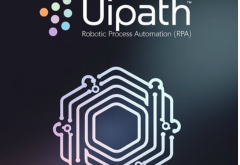BENGALURU, India — May 8, 2024 – NetApp® (NASDAQ: NTAP) has released insights from its recent report on AI in business, conducted in collaboration with IDC. Titled “Scaling AI Initiatives Responsibly: The Critical Role of an Intelligent Data Infrastructure,” the report highlights the challenges and benefits associated with different levels of AI adoption. It also outlines successful strategies employed by leading organizations to responsibly scale AI and GenAI workloads, aiming to help businesses avoid the common pitfalls that lead to the failure of approximately 20% of AI initiatives.
The research underscores the importance of intelligent data infrastructure in the success of AI initiatives. The IDC White Paper reveals that organizations categorized as AI Masters optimize their data infrastructure to support transformative AI projects by ensuring easy access to corporate datasets and designing a unified, hybrid, multicloud environment. However, despite their ambitious goals, AI Masters face challenges related to infrastructure-based data access limitations, compliance issues, and insufficient data.
Similarly, AI Emergents encounter similar obstacles along with budget constraints and business restrictions on data access. The report emphasizes that organizations need robust data infrastructure to scale AI initiatives responsibly, with infrastructure flexibility being crucial for data access and AI success.
Jonsi Stefansson, Senior Vice President and Chief Technology Officer at NetApp, stresses the significance of intelligent data infrastructure in boosting the success rate of AI initiatives. He highlights the role of such infrastructure in providing flexibility in data access, integrated data management, and adaptive operations to optimize performance, cost, and sustainability.
Ritu Jyoti, Group Vice President, Worldwide Artificial Intelligence and Automation Research Practice, Global AI Research Lead, at IDC, emphasizes the importance of infrastructure flexibility in AI initiative design and planning. She underscores the need for a flexible, unified approach to storage, along with standardized governance policies and procedures, to ensure the success of AI projects.
The research also highlights the importance of effective data governance and security processes in driving AI success. It emphasizes that organizations must prioritize security, data sovereignty, and regulatory compliance to mitigate risk in their AI initiatives.
Efficient resource use is another crucial aspect of scaling AI responsibly. Organizations must define and implement metrics to assess the efficiency of resource use in AI model creation as AI workflows become increasingly integral to various industries.
 Latest Technology News Today – Get Latest Information Technology Updates and Services Latest Technology News Today – Get Latest Information Technology Updates and Services
Latest Technology News Today – Get Latest Information Technology Updates and Services Latest Technology News Today – Get Latest Information Technology Updates and Services 









